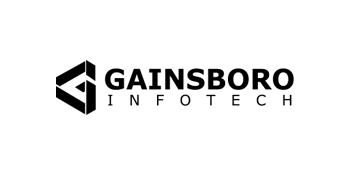Artificial Intelligence (AI) is revolutionizing various industries, including web design, by enabling smarter, more personalized user experiences. At Gainsboro Infotech, we recognize the transformative potential of AI in enhancing website functionality and engagement. This comprehensive guide explores how businesses can leverage AI to innovate their web design strategies effectively.

Understanding AI in Web Design
AI in web design involves using machine learning algorithms to automate tasks, personalize user experiences, and optimize website performance. By analyzing data patterns and user behavior, AI-powered tools can predict preferences, streamline workflows, and deliver dynamic content in real-time.
Benefits of AI in Web Design
Personalization: AI algorithms can analyze user data to personalize content, recommendations, and user interfaces based on individual preferences and behavior patterns.
Automation: AI automates repetitive tasks such as content creation, A/B testing, and performance optimization, allowing designers to focus on creative and strategic aspects of web development.
Predictive Analytics: AI-powered analytics predict trends, user intent, and future behaviors, enabling proactive adjustments to website strategies and content.
Enhanced User Experience: By understanding user interactions and preferences, AI helps design intuitive interfaces, improve navigation, and optimize conversion paths.
Implementing AI in Web Design
AI-Powered Chatbots: Integrate chatbots that use natural language processing (NLP) to provide personalized customer support, answer queries, and guide users through the website.
Dynamic Content Generation: Use AI tools to generate dynamic content such as product recommendations, personalized landing pages, and automated email campaigns tailored to user interests.
Behavioral Analysis: Utilize AI algorithms to analyze user behavior, click patterns, and navigation paths to optimize website layout, content placement, and call-to-action buttons.
Responsive Design Optimization: AI can analyze device-specific data to automatically adjust website layouts, images, and content for optimal display across various screen sizes and devices.
Case Studies: Real-World Applications
Netflix: AI algorithms analyze viewer data to personalize content recommendations and user interfaces, enhancing user satisfaction and retention.
Adobe Sensei: Adobe’s AI platform uses machine learning to automate design tasks, generate visual content, and personalize experiences across Adobe Creative Cloud applications.
Future Trends and Considerations
AI Ethics: Consider ethical implications such as data privacy, transparency, and bias mitigation when implementing AI in web design.
Continuous Learning: Stay updated with AI advancements and industry best practices to leverage emerging technologies for ongoing website optimization and innovation.
Conclusion
In conclusion, integrating AI into web design empowers businesses to create more intuitive, personalized, and engaging digital experiences for users. At Gainsboro Infotech, we specialize in harnessing AI technologies to optimize web design strategies and drive measurable results. Partner with us to leverage the power of AI and transform your website into a dynamic platform that exceeds user expectations in the evolving digital landscape.


No Comments